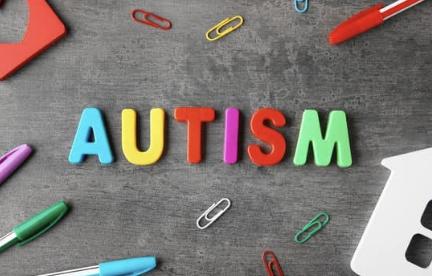Complex neurodevelopmental conditions or disability of development occur in children called autism spectrum disorder or autism. Variations in behavior, communication, and social interactivity identify this condition. A person with autism may have repetitive or restricted interests or behavior. The symptoms appear among children within 1-2 years of age, sometimes later or earlier.
Symptoms
The symptoms they may face include the following:
* Communication issues and problematic social reciprocity
* Restricted or repetitive behavior, interests, or activities.
* Delayed skills of cognition, language, and movement
* Seizures
* GIT problems
* Hyperactive behavior
* Discontentment or extreme stress
* Poor sleep or eating patterns
* Delayed walking
* Insufficient coordination
* Problem with posture controlling
* Indigent walking
Causes
The causes of autism are not yet identified, but the risk factor may include the following
* Due to genetic mutation
* One in a family has autism
* Heavy metal or toxins exposure
* Low birth weight
* Late conceiving
Tips for managing autism traits in children
The cure for autism is not available, but some preventive measures or therapies can help avoid the symptoms of autism.
* Play therapy
As they can’t express their feelings to their parents, this makes them get connected with their parents. A therapist gets to know the child’s inside and then finds a solution to their issues. Children learn about the world, themselves, and their place.
* Behavioral therapy
This includes cognitive behavioral therapy to improve cognition in which a child’s actions are observed.
* Cognitive behavioral play therapy
To treat mental health issues of children. The therapist gets to know a child by their play.
* Acceptance and commitment therapy
Psychotherapy includes analyzing behavior based on humans’ mental processes and language.
* Dielectric behavioral therapy
To treat disorders related to regulating emotions, depression, and rocky personal relationships among autistic children and parents.
* Occupational therapy
In children with issues in the development of their senses, it is painful when they can’t smell, see, taste, or hear anything; so to manage this, a therapist does occupational therapy. A diet is special for sensory development, and lifestyle is suggested to engage the child in daily activities and feel relaxed.
* Speech therapy
This therapy aids the child with language and communication issues and enhances their nonverbal, social communication, and verbal difficulties.
* This bolsters the muscles of the jaw, neck, and mouth,
* Make the sounds of speech clear
* Acknowledge body language.
* Physical therapy
They aid in making the develop coordination, balance, and correcting their posture. They also treat delayed motor skills and make them learn by imitating other person’s postures and actions.
* Sensory cogitation
Children with autism are sensitive to sensory development. Provide the autistic child with sensory tools such as weighted blankets or fidget toys and prevent them from noise and intense light.
* Life Style Management
Ensure the autistic child has a pattern to follow to improve their skills. Proper sleep, meal, and playtime must be established. Try to enhance social interaction by making them play with their age fellows.
* Diet
The diet for autistic children includes the following:
* Fresh fruits, vegetables, lean meat, egg, fish, and unsaturated fat.
* Gluten-free diets such as wheat, barley, and other grains.
* Try to avoid artificial additives form diet such as flavoring or coloring agents and preservatives or sweeteners.
Conclusion
Autism is a disorder of neurodevelopmental conditions in which delays in motor skills, coordination, making balance, maintaining behavior, activities, and language difficulties occur in a child. This happens due to genetic mutations, a family history of autism, if parents conceive at late ages, or due to disability of the brain. To manage autism in children, lifestyle management and sensory cognition must be done, and some therapies such as behavioral, physical, occupational, play, and speech therapies are done to improve skills and language and maintain balance in children. Dietary variation and balanced diets such as lean meat, fruits, vegetables, and gluten-free diet are recommended to children by health care professionals.

